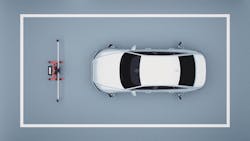The progression of vehicle technology has made a dramatic difference in measuring a typical service shop business. The aftermarket will have to relearn this portion of the business all over again.
In previous articles I have stated that a typical shop owner is going to require 6 to 8 days of management training per year moving forward. This labor measurement is one of the changes that will have to be relearned as the old way of measurement will leave too much money on the table.
As commodity margins decline and vehicle software grows, everyone must understand where their management attention must be directed.
A redefined labor measurement will take place within the next 1-2 year period.
The maintenance labor category will be just that, pure maintenance work based on the manufacturers’ recommended service intervals and repairs of worn out or broken parts.
Diagnostic labor will be the analyzation of a situation or interpretation of information. (What is the problem, what caused it and what is the solution?) I visualize technicians becoming diagnostic specialists and they will have a special bay setup to complete their work.
Inspection labor will be all completed paid inspections.
Re-flash will be strictly updating the vehicle from the OEM website.
Calibration labor will be a new category as the lining up of sensors after a repair has taken place will become an additional specialty skill within the shop. Software platforms will have to be understood.
As software increases in a vehicle, understanding this technology will become a new normal. Going from 100 million lines of software to 500 million lines of software in an average vehicle in 3 to 5 years is dramatic.
The key information that will need to be understood is the mix of each labor category within the shop from your current clientele. This brings back the importance of key efficiency measurement for each category. Specific training will have to be required to ensure the shop has the right skill set within the team for professional execution of the services on behalf of the client. The efficiency measurement of each category will also help establish the billed hours per R/O and the required vehicle count that will be needed for the shop.
Measuring the “effective” rate will be critical in the labor mix measurement. How much labor should we be getting from each labor category to justify the staffing level?
All that being said, another big change coming to the industry will be the setting of labor rates for each category. Labor rate multiples will change from what they are now based around the technicians’ hourly wage to working with the individual shops’ actual total cost per billed hour.
Better job quoting skills will have to be embraced because the knowledge of how a job must be done and what kind of labor is involved to complete the job to total client satisfaction must be learned.
As you can see, personnel development and business measurement will become more intertwined than ever before. All of these things combined will affect the net profit of the business.
Our industry is changing so rapidly and dramatically and the reason for this is due to vehicle technology and technician competency that will be required to fix and maintain a vehicle properly.
Imagine the additional education that will have to take place for a client who has one of these vehicles. That is going to be a skill set on its own.
I see this as just the beginning of so many changes coming to the aftermarket within the next 1-3 years maximum. What will happen to the shops that don’t have a learning culture in their business or don’t want to re-learn and move in the direction they must? Time will not be on their side. It is this kind of change that will dramatically separate the shops in a given marketplace.
As a professional shop you must always be ahead of the wave and seek out the knowledge you will need to keep the business moving forward. Hold on for the ride over the next three years; it will be a great one for the shops that get it.



